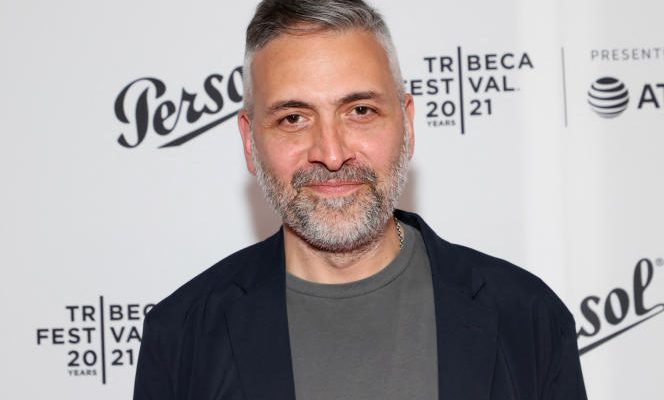Brighton 4th offers a sensitive portrait of the Georgian community of Brooklyn, New York, where, thirty years earlier, James Gray was filming Little Odessa. This filial drama is the third feature film by Georgian filmmaker Levan Koguashvili, still little known in France. Inspired by Italian neorealism, his cinema marked by a slow-burning humor, a narration that unfolds in the harmless and a form of sociological melancholy, immediately places him as a director to follow.
Where are you from ?
I was born in 1973, in Tbilisi. My mother was a biology teacher and my father a doctor. At 17, I was blown away by Amadeus [1984]by Milos Forman, before succumbing to his first Czech films – The Loves of a Blonde [1965] is my preferred. I enrolled in the brand new Tbilisi State Theater and Film University. A year later, the civil war broke out, and I worked as a war reporter for two years. I then resumed my studies in the class of Marlen Khoutsiev, one of the instigators of the new wave of Soviet cinema in the 1960s, at the Russian state institute VGIK, in Moscow.
How did your interest in the Brighton Beach neighborhood on the Coney Island peninsula in New York come about?
In the early 2000s, I continued my training at the Tisch School of the Arts in New York with the Graduate Film Program, even though many Georgians had just arrived in Brighton Beach. It made me want to tell stories of America from a Georgian perspective. I notably shot a documentary, Women from Georgia [2009]about Georgian caregivers who worked with elderly New Yorkers to support their families back home.
For many people from the post-Soviet world, the United States seems to start at Brighton Beach, doesn’t it?
Many Russian Jews arrived in the late 1970s. As part of these migrations, the Russian mafia turned the neighborhood into a hotspot for organized crime. The Georgians, the Belarusians, the Ukrainians, the Moldavians, the Uzbeks arrived at the end of the 1990s, and 95% of them had no papers. No one spoke English. It’s as if they were unable to get rid of their Soviet past in the United States. Many of the stories in my film come from there, like the kidnapping of an Uzbek who hires chambermaids without paying them.
In the center, there are two generations: Kakhi, a former Georgian wrestling champion, and Soso, his son, riddled with debts…
You have 45.54% of this article left to read. The following is for subscribers only.
